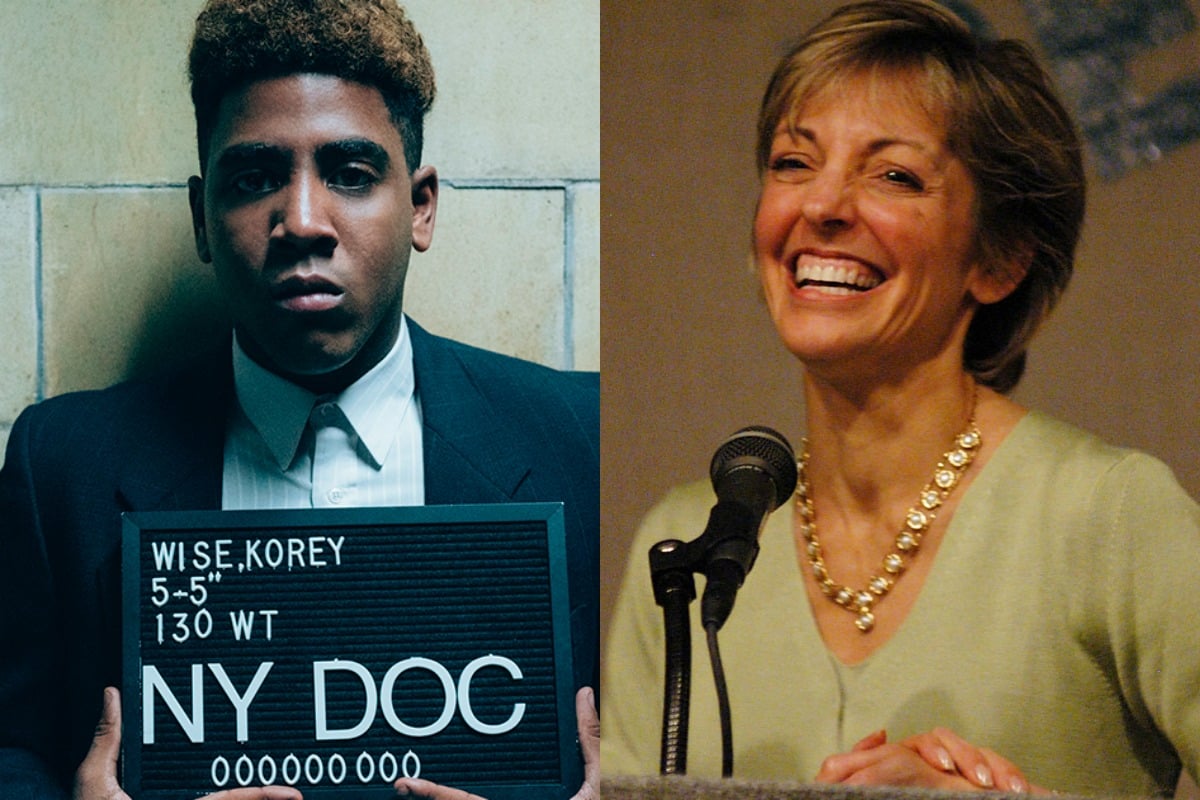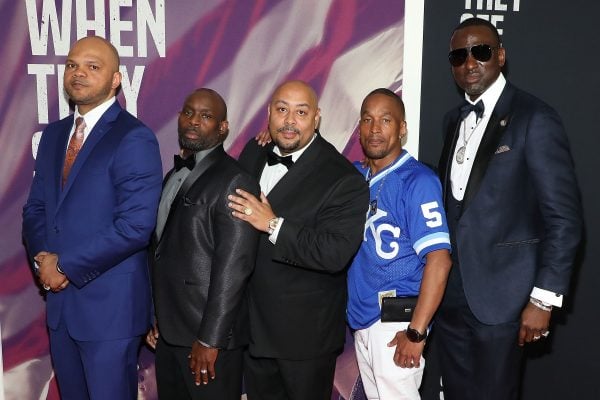
On the night of April 19, 1989, Trisha Meili set out for her nightly jog in New York’s Central Park.
The 29-year-old had just finished a 12-hour day working at Salomon Brothers, a Wall Street investment bank.
That night, her regular run was cut brutally short.
Meili was struck on the head with a tree branch and dragged into a wooded area.
A few hours later, two men found Meili naked, bound and gagged. She had been severely beaten and raped. Her eye socket was crushed and she had several skull fractures.
Her white running top was now a dark shade of brown, it was so saturated with blood and mud.
You can watch the trailer for When They See Us below, post continues after video.
The ground where she was found was covered in blood and there were bloody drag marks from where she had been dragged from the road into the wooded area.
The investment banker was taken to Metropolitan Hospital, where doctors told her family she would likely not survive her injuries.
Somehow, 12 days later, Meili woke up from her coma. She had no memory of her attack.
While Meili was in the coma, the police had arrested and built a case against five young boys from Harlem, who were aged between 14 and 16. The police said the ‘Central Park Five’ had gang raped Meilie while “wilding” in the park.


Top Comments
Good to hear a happy ending! What happened to her was horrific, it is probably a blessing that she doesn't remember it.
Yes, a terrible ordeal. A true survivor. Not so great either, for the men who were wrongfully convicted for a crime they did not commit.
We are used to such, hard life but it is, what it is
It is what it is? Attitudes around this thought pattern needs to change. Enough is enough
Forgive me for my statement, I come from 3rd world country, where those with money have the power and control the legal aspect, that's my reality, it's hard for me to be hopeful when i know the status quo, I will keep positive mindset regardless though